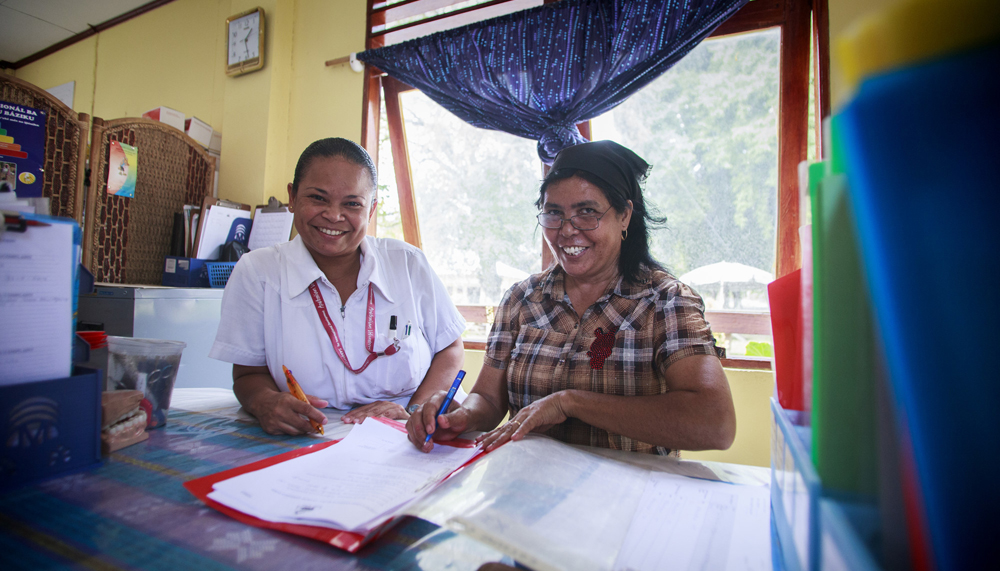A mentor and trainer abroad confirms the value of personal growth and mutual respect.
The conditions RNs are accustomed to working within at an Australian hospital are a far cry from the challenging and often resource-poor environments available in Tibar, Timor-Leste.
For Australian volunteer Maria de Jesus, these disparities are a daily reality leading to personal growth and increased resilience. Here, she speaks about her experiences overseas.
FN: What led you to become an international volunteer?
Maria de Jesus: When I was quite young I had an interest in working in developing countries, so I became a nurse and decided one day I would volunteer overseas. I am East Timorese born but have lived in Australia all my life and felt it would be nice to live in Timor-Leste. It’s a life-long dream to be here, and here I am.
Can you explain your day-to-day work in Timor-Leste?
My role here at Klibur Domin is clinical nurse mentor and trainer. It is a low-level health facility so it’s not as hands-on as my previous job as a registered nurse in Perth. My role here is educating staff and patients on certain health conditions or side effects of some medications. I am trying to mentor the local staff here to develop their current knowledge to a point where if there were a medical emergency, they would be able to assist and manage the situation. Our daily routine here involves administering TB medications, doing injections and measuring blood pressure on our renal failure patients who require dialysis treatment in Dili twice a week.
Describe what it’s like to live and work in Timor.
I think the hardest thing for me is the weather. It’s quite hot and humid and the heat gets to me. This is my fourth posting to Timor-Leste. I’ve done some volunteer placements with other organisations as well, and I’ve learnt fairly quickly what I need to do to be flexible and adaptable in this environment. I’ve been brought up in Australia and you have to let go of some of the things you’ve been accustomed to like air conditioners and getting into the car and getting to wherever you want to go. But I try not to focus on any negatives and try to focus on why I am here. The local staff are lovely and friendly so that makes my stay easier, too.
Why would you encourage others to volunteer overseas?
Volunteering is quite a humbling experience and I’ve grown personally from it. I’ve learnt to treat [people] with respect regardless of background or economic background. Everyone around the world basically has the same dream, but here you appreciate that people don’t have much.
What are the most significant changes you’ve tried to influence during your time in Tibar so far?
The staff here are not used to doing a lot of clinical documentation, but we’ve been working together to improve the health standards and introduced clinical documentation where we monitor what we do for our patients and keep a record of it. We have also introduced daily ward rounds, which are very important in a hospital setting. A lot of our staff don’t even have a nursing background, so it makes me happy that they are taking these suggestions on board and hopefully they will continue that when I leave. Our patients are doing better and the staff are growing professionally as well.
When you are not volunteering, what are some of the things you do in Timor?
Tibar is about 30 minutes out of Dili, so I definitely go to Dili for the weekend to get away from everything, and for a good coffee. I like to do a lot of reading and I like to catch up with new friends and other volunteers. If we have time, we go to the beach, or we watch a movie.
Maria de Jesus’s assignment is supported by the Australian Government, under the Australian Volunteers for International Development (AVID) program.
Do you have an idea for a story?
Email [email protected]
 Aged Care Insite Australia's number one aged care news source
Aged Care Insite Australia's number one aged care news source

